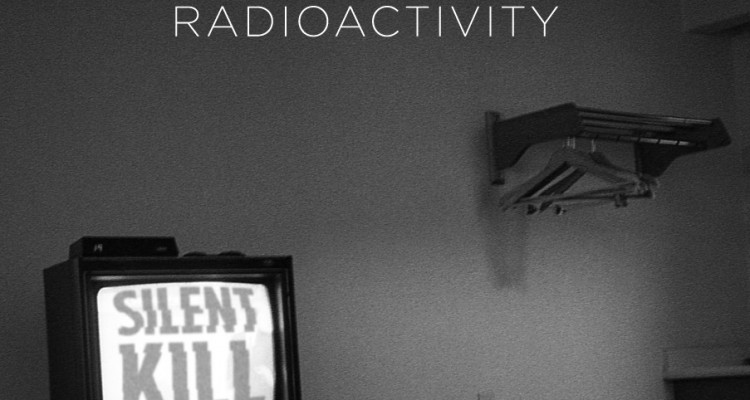At this point I think we can all agree The Marked Men are one of the most important punk bands of the last fifteen years. I use the present tense since the band still exists in some form, though their most active period is surely behind them. Sporadic live performances and no mention of future recording plans suggest as much.
Naturally, the members’ post-Marked Men projects have attracted a good deal of attention. Radioactivity, the new outlet for singer/guitarists Jeff Burke and Mark Ryan, is one of the most promising.
But if you can forgive a slight detour into the fuzzy realm of personal affect, the band had me underwhelmed at first. Their self-titled album released in 2013 certainly had my attention yet something seemed missing. While the music sated my appetite for anything Marked Men-related, it ultimately struck me more as fragments from the past than a form for the future.
Enter Silent Kill, the band’s second full-length record. Simply put – there’s not a wrong note anywhere on this thing. Whatever reservations I had have met a quick and decisive death at the hands of this Denton, Texas, foursome.
Straight out of the gate come three hard driving songs that don’t let up. That is until they do: rhythmic crescendos and suspended chords tell us we just left the straight away for open air and free fall. But the songs always land back on firm ground, heading headlong for the horizon. It’s not until the album’s fourth song that things downshift into a slower gear with a mid-tempo power-pop number. By this point, if you’re not hooked then you might as well get off and find another ride.
Although the album has enough variety to keep the listener moving along, it never loses focus – a difficult feat given such limited means. Songs like “No Alarm” and “Silent” have the stop-start punk snarl that could have landed on any of the classic albums to come from the cultural atom bomb of 1977. On the other hand, “No Connection,” and “Where I Come From,” mid-tempo tunes with plenty of jangle and hooks, look back to the 1960s proto punks who still embraced the melodies of pop music’s golden era.
These comparisons don’t mean to suggest the band is stuck in a staid rehearsal of yesterday’s youth music. While these songs call out to us from the past, they possess a vitality that could only appear today. There is a presence on songs like “Silent Kill,” and “Silly Girl,” that seems undeniable; to pretend this music could come from anyone other than these four musicians is simply to pretend.
It should be said that much of this music’s strength comes from the skill of its players. It’s something of a punk rock platitude to dismiss this music as played by people without talent or ability. But for every Sid Vicious there was also a Billy Zoom, for every Darby Crash a Siouxsie Sioux.
Both Jeff Burke and Mark Ryan have already made their gifts well known, and their work here is no exception. Yet the rhythm section of Daniel Fried and Gregory Rutherford delivers some of the album’s most memorable musicianship. The speed and precision of Rutherford’s drumming fit into the pocket like cellphones of days gone by. And Fried’s bass playing stands out as inventive and engaging without becoming ostentatious. It’s the kind of subtle playing rarely achieved by those who take up one of rock music’s most disparaged instruments.
Despite the album’s numerous triumphs, one might still ask (in true punk fashion): so what? In 2015, what could this genre possibly have to say? By now, the epithet “punk is dead” has become its own cliché. To search for something of substance here seems beyond effort or interest.
In interviews, Burke adopts a similar kind of blasé attitude. He presents his songwriting as offhand and unselfconscious. But I have to think something of this subject has been on his mind whether consciously or not. On the album’s title track, he sings: “I don’t want to die/I’ve got a thousand things to say.” And Silent Kill indeed has something to say, perhaps not in its musical antecedents but certainly in the success of its songs and the strength of their execution.


